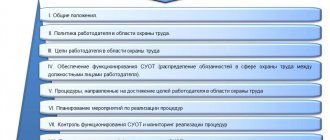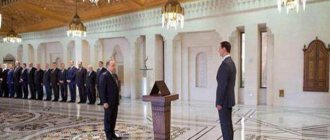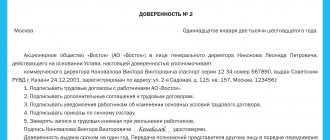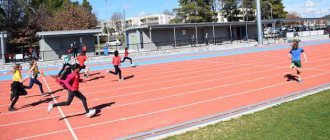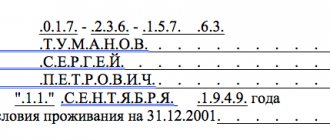Kindergarten management
The administration of preschool institutions includes the head, his deputy and the senior teacher. Everyone has their own specific job responsibilities. The position of the head of the kindergarten is decisive in the leadership. Its activities are based on the Law of the Russian Federation “On Education”, standard regulations on a preschool educational institution, and the charter of this institution.
The responsibilities of the head of the kindergarten include staffing groups with children according to their age, health status, individual characteristics and parents’ requests. He also recruits personnel, manages teachers, and all service personnel. In addition, this specialist is responsible for the rational, competent distribution of budget allocations and funds that come from various sources.
Parents have the right to contact the director on all issues related to the kindergarten and make their own proposals. They have the opportunity to demand from the management of preschool education to provide the child with appropriate care, education, training, protection and promotion of health.
Acting head of a preschool institution: opportunities and limitations
The job responsibilities of the manager of any institution, including a kindergarten, involve ensuring the stable work of the team of employees both during the presence of the manager at the workplace and during his absence. The absence can be short-term, when the appointment of another person is not required in order to perform the duties of a manager (departure to a higher organization, to a meeting with the founder, or to conclude agreements on supplying a child care institution with food, toys or medicines). Or it can be long-term, when by order of the manager an acting manager is appointed for the period of his absence (during the next vacation, business trip, illness or internship).
In his place, the head usually appoints a senior teacher, methodologist or deputy head for educational work. In modern kindergartens, these are all titles of the same position, but with different opportunities during the period of fulfilling the duties of the director of the kindergarten. If the acting head was previously a senior teacher, then his transition to a new position will be financially unprofitable for him, since his qualification category only applies to his performance as a teacher in a kindergarten. When he performs the functions of a manager, payment is made without taking into account the qualification category, unless the senior educator has passed certification for two positions in this institution: educator and manager. The most profitable option is if the acting manager will perform his work without being released from performing work in his main position, i.e., internal part-time work will be formalized. This option is more common, since Article 151 of the Labor Code of the Russian Federation establishes in this case an unlimited period for the performance of duties, whereas in case of a complete replacement in a position, such performance is possible for a period of no more than one month. This is beneficial for education workers, since the duration of their vacation is at least 36 working days.
There are no such problems for a person in the position of deputy head of a kindergarten. He, as a rule, has the qualification category of a manager, and his functional responsibilities include the line that during the manager’s vacation he is the acting one, with all the rights and responsibilities of his boss. He may be suspended for the same period from performing his direct duties in educational work.
If the deputy head works part-time in a preschool institution, then in order to assume the position of head, he must take leave from his main place of work for the same period (Article 347 of the Labor Code of the Russian Federation). Restrictions on its activities are determined by Art. 345 of the Labor Code, which regulates the work of part-time workers who work only half the time in the specified position. Thus, a part-time employee is an employee who performs the duties of a manager only half.
If for some reason the deputies were unable to perform the work of the manager during his vacation, then the acting director is appointed by the founder from among internal employees with experience in this position, or an outsider is hired for this period. These employees do not have the right to sign documents of a material nature, unless a separate power of attorney has been drawn up from the head of the institution. In the absence of such a power of attorney, but there is a need to conclude an agreement, the acting manager has the right to notify the absent employee of the transaction. The same person, in turn, must appear at the appointed time to sign documents at his workplace.
The acting head during the absence of the head has the opportunity to demonstrate to the founder his potential in the field of management, which may become an incentive and reason for providing him with a vacant position of head in another preschool institution.
Job description structure
This document makes it possible to effectively determine the worker’s duties, responsibilities and rights, and also prescribes what level of education, qualifications and experience he must have.
In organizations that operate on the basis of instructions, data must be prepared for each employee on the staffing table. Management is no exception. The job description of the head of a kindergarten is a fundamental document in work activities.
There is no approved template for this document in the legislation. However, practice shows that in most cases the instructions are drawn up according to the following model:
- The first chapter describes general information about the position, as well as experience and qualification requirements.
- The second chapter describes the responsibilities assigned to the manager.
- The third chapter spells out the rights of workers.
- The fourth contains the types and grounds of responsibility that are assigned to the manager.
Who runs the kindergarten: parents ask
The management of the kindergarten includes:
- manager;
- Deputy Head for Educational Work;
- senior kindergarten teacher;
- head of administrative and economic affairs, or supply manager.
Each of them has job descriptions. The position of garden manager is the main one in the administrative chain. His work is recorded and regulated by the law of the Russian Federation on education.
In addition, the manager’s responsibilities include forming groups of children according to their age and state of health. The requests and wishes of parents are also important; based on them, certain groups are formed in kindergarten. Also, the selection of personnel and interviews are placed on the shoulders of the boss. Plus, the main person in the garden is responsible for the correct expenditure of funds for the garden and wages of employees. For all questions related to the work of the preschool institution, parents should first contact the head. Even more, parents can demand from the leader proper care and education of their child. In most cases, hygiene control is often also the responsibility of management.
Job responsibilities
Often, the job description of the head of a kindergarten includes the following responsibilities:
- Management of general work in the organization.
- Competent provision of pedagogical and economic activities.
- Monitoring the strict implementation of regional and federal requirements that are established for preschool institutions.
- Carrying out certain work with children, creating suitable conditions for their harmonious development.
- Consultations with parents or their legal representatives regarding issues of raising children.
- Work on organizing the health and nutrition of pupils.
- Monitoring the work of kindergarten employees, conducting personnel work.
- The manager represents the kindergarten in contacts with various organizations and authorities.
- Monitoring compliance with safety standards.
The specific list will depend on the specifics of the preschool institution’s work, so this manager may be assigned other responsibilities.
Sample job description for a kindergarten manager
General section
- A person applying for the position of director of a kindergarten must meet the following criteria:
- education (secondary specialized, higher) pedagogical profile;
- successfully completed medical examination;
- compliance with the requirements of Art. 351.1 TK;
- Five years of experience working with children.
- The head of the kindergarten reports to the relevant head of the education department.
- The head of the kindergarten is hired and dismissed by order of the relevant head of the education department.
- In the absence of the manager (vacation, illness, etc.), the functions assigned to him are performed by his deputy.
- The head of a kindergarten is required to understand:
- current laws, regulations, administrative acts regulating the activities of the institution;
- existing programs for raising children in preschool institutions;
- basics of managing subordinate personnel;
- principles of interaction with students of the institution and their parents;
- psychological and age characteristics of pupils;
- principles for monitoring the activities of students and staff;
- features of the work of kindergarten staff and departments;
- theoretical foundations of pedagogical education of children;
- rules for resolving disputes;
- norms of relationships with regulatory authorities;
- modern technologies for teaching and raising children;
- ethical rules used in working with children;
- basics of office work;
- composition of the kindergarten staff;
- principles of organizing the activities of the institution in the financial, administrative and economic spheres;
- rules for working with the necessary programs and office equipment;
- rules for providing emergency medical care;
- current sanitary and hygienic standards, fire safety and labor protection rules.
- The head of the kindergarten is guided by:
- current laws, rules, standards;
- internal documentation of the institution;
- sections of the instructions.
Responsibilities
- Manage the daycare center in accordance with established norms and industry standards.
- Ensuring the financial, administrative and economic functioning of the institution.
- Disposal of funds, including those allocated from the budget, within its competence, in accordance with current rules.
- Monitoring the correctness of record keeping in the institution.
- Monitoring the appropriate provision of children with food.
- Ensuring that necessary reporting is provided to regulatory agencies.
- Interaction with students, their parents, staff, representatives of third-party and supervisory organizations in the process of resolving current issues.
- Monitoring the correctness of staff treatment of students.
- Manage facility staff and implement necessary personnel changes in accordance with established standards.
- Ensuring a schedule of rest and activities.
- Oversee the development and implementation of plans in the area of responsibility.
- Prompt resolution of current issues in the activities of the institution.
- Assisting students and staff within the limits of their competence.
- Reception of complaints from students, their parents, staff and their prompt consideration.
- Ensuring compliance with sanitary and hygienic standards, labor standards, and fire safety rules on the territory of the institution.
- Prompt notification of the relevant services in the event of an emergency on the territory of the institution.
- Ensures that personnel undergo medical examinations and certification in the manner specified in the institution’s documents.
Responsibility
The head of a kindergarten may be held liable in the following situations:
- Causing material damage to an institution is within the limits specified in the current legislation.
- Improper performance of official functions - in accordance with the provisions of labor legislation.
- Violation of confidentiality standards in handling internal information - in accordance with the norms of current legislation.
- Violations of current norms and laws - in the form of disciplinary, administrative or criminal liability, in accordance with the provisions of current legislation.
Rights
The head of a kindergarten has the following set of rights:
- Acts on behalf of the institution in relations with individuals and legal entities.
- Manages the staff of the institution in accordance with internal rules and current regulations.
- Issues the necessary local acts within the institution.
- Manages personnel policy, including in the field of incentive payments to employees.
- Maintains relationships with banks on opening and closing current accounts.
- Concludes agreements with individuals and legal entities on behalf of the institution.
- Present at events held with students (without the right to make complaints).
- Passes certification in the prescribed manner.
- In accordance with the established procedure, makes changes to the institution’s work schedule.
- Stops the functioning of the institution when factors that pose a threat to students and staff are detected.
Who is eligible to hold this position?
How to become the head of a kindergarten? A manager of this level must have a number of qualities and meet qualification requirements. The education of the head of the kindergarten must be higher in economics, pedagogy or management. Experience in the field of teaching must be at least 5 years. Sometimes the head also carries out teaching activities at the same time. In this case, the worker must meet professional standards for workers in the teaching field.
The legislation provides for groups of persons who do not have the right to occupy this position. These include people who have a criminal record, suffer from certain diseases, etc. The job description of the kindergarten manager must describe these restrictions. This employee must have knowledge of the list of necessary regulations, laws, and the charter of the kindergarten.
Job descriptions for kitchen (food department) workers at preschool educational institutions according to Professional Standards
New job descriptions for employees of the catering unit (kitchen) of a preschool educational institution (kindergarten), developed in 2019-2020 on the basis of professional standards, include the job description of a preschool educational institution cook according to Professional Standard 33.011 “Cook”, as well as a chef and kitchen worker according to the EKS.
download: documents on Fire safety in preschool educational institutions 33 documents taking into account orders as of March 18, 2020
Job descriptions for Professional Standards:
- Job description of a preschool educational institution chef (professional standard)
- Job description of a cook in a preschool educational institution (professional standard)
- Job description of an assistant cook at a preschool educational institution (Profstandart)
Job descriptions for CEN:
- Job description of a chef at a preschool educational institution (EKS)
- Job description of a cook in a preschool educational institution (EKS)
- Job description of a kitchen worker at a preschool educational institution (EKS)
download: instructions on labor protection for the catering unit (kitchen) Instructions for the catering unit of the School, preschool educational institution, canteen, restaurant, cafe. Update: 04/15/2020
For completeness, the proposed package of job descriptions according to the professional standard for a preschool educational institution (kindergarten) is supplemented by some job descriptions developed in accordance with new laws in the field of education and a unified qualification directory of positions.
We recommend going to: Instructions for fire safety in preschool educational institutions Instructions for labor protection in the kitchen of preschool educational institutions
If you liked the page, share the link with your friends:
Rights of the head of a preschool educational institution
Legislation established the basic rights of heads of institutions. It is not necessary to register them again in internal documents. In the section on the rights of the head of a kindergarten, it makes sense to include the following rights:
- Request for assistance in performing duties.
- Appeal to senior management with amendments and suggestions on work issues, etc.
The head of a kindergarten has the right:
- Give instructions of a working nature that are mandatory for execution by both heads of structural units and a specific specialist.
- Independently make decisions regarding the imposition of penalties (material and disciplinary) on subordinates who do not perform or improperly perform their work duties. Also, this employee can encourage specialists who have distinguished themselves with good work.
- Fully manage the property and funds of the preschool institution, while complying with the requirements of the charter and regulations.
- Demand everything necessary to create proper professional conditions: equipment, inventory, comfortable workplace that comply with sanitary, hygienic standards and rules, etc.
- Visa and sign documentation that is within the competence of this employee.
The legislation provides for extended annual paid leave for the head of a kindergarten. This employee has the right to early retirement in old age, as well as to receive free medical, social and professional assistance in cases where damage to health occurred due to an accident at work or an occupational disease.
Job description of a caretaker (professional standard)
| Municipal budgetary educational institution secondary school in the village of Bolon, Amur municipal district, Khabarovsk Territory | APPROVED Director of Municipal Budgetary Educational Institution Secondary School in the village of Bolon _____________ O.V. Mityanina Order No._____dated “__”_______20___ |
Job description
farm manager
_________________
1. General Provisions
1.1. This job description has been developed taking into account the Professional Standard: 07.005 “Specialist in Administrative and Economic Activities” (clause 3.4), approved by Order of the Ministry of Labor and Social Protection of the Russian Federation dated February 2, 2020 No. 49n; Federal Law No. 273 of December 29, 2012 “On Education in the Russian Federation” as amended on July 26, 2019; in accordance with the Labor Code of the Russian Federation and other regulations governing labor relations between employee and employer.
1.2. This instruction defines the list of labor functions and responsibilities of the head of the household in a general education institution (hereinafter referred to as the school), as well as his rights, responsibilities and relationships by position in the school staff.
1.3. The head of the household is appointed and dismissed by order of the school director. During vacation and temporary disability, his duties may be assigned to the deputy director for administrative and economic work or to an employee who is one of the most experienced service personnel. Temporary performance of duties in these cases is carried out in accordance with the order of the director, issued in compliance with the requirements of the Labor Code of the Russian Federation.
1.4. The caretaker belongs to the “Managers” category, is directly subordinate to the director of the educational organization and performs his official duties under the leadership of the deputy director for administrative and economic work (if any).
1.5. The following person is accepted for the position of caretaker:
- having secondary vocational education under the training program for mid-level specialists or secondary vocational education (non-core) under the training program for mid-level specialists and additional vocational education under the professional retraining program in the field of activity, additional professional education under the advanced training program in the field of activity (at least once at three years old);
- no requirements for work experience;
- has undergone mandatory preliminary (upon employment) and periodic medical examinations (examinations), as well as extraordinary medical examinations (examinations) in the manner established by the legislation of the Russian Federation;
- Persons who are deprived of the right to hold this position in accordance with a court verdict that has entered into legal force are not allowed to work in an educational organization; having or having had a criminal record for crimes, the composition and types of which are established by the legislation of the Russian Federation; recognized as legally incompetent in accordance with the procedure established by Federal Law; having diseases included in the established list.
1.6. In his activities, the head of the economy is guided by the Constitution and laws of the Russian Federation, decrees of the President, decisions of the Government of the Russian Federation and local educational authorities of all levels on issues of economic maintenance of institutions; administrative, labor and economic legislation. Also, the caretaker is guided by:
- SanPiN 2.4.2.2821-10 Sanitary and epidemiological requirements for the conditions and organization of training in educational institutions;
- Law of the Russian Federation “On Accounting”;
- The charter and local legal acts, including internal labor regulations, orders and instructions of the school director;
- rules and regulations of labor protection and fire safety;
- an employment contract between the employee and the employer;
- UN Convention on the Rights of the Child.
1.7. The school housekeeping manager must know:
- legislation of the Russian Federation regulating the provision and operation of buildings and structures;
- resolutions, orders, orders, other governing and regulatory documents of higher authorities related to the economic services of a general education organization;
- fundamentals of labor legislation of the Russian Federation, legislation in the field of logistics, procurement activities, office work within the framework of performed labor functions;
- design features of the equipment of life support systems of an educational institution;
- local regulations of the school of a general nature and in the functional area of activity;
- basics of management, personnel management;
- basics of labor organization;
- methods of organizing financial and economic activities;
- methods and rules for receiving and transmitting, storing and archiving documentation;
- regulatory legal acts, methodological materials, regulations, instructions, other guidance materials and documents regulating the provision and operation of buildings and structures;
- norms and rules for ensuring fire safety within the framework of work functions;
- norms and rules for ensuring environmental safety within the framework of work functions;
- general technical characteristics of life support systems of an educational organization;
- basic requirements of standards, technical, quality characteristics for buildings, structures, premises and equipment of educational organizations;
- rules for the operation of premises in a general education organization;
- basic conditions of concluded contracts for the supply of materials, products, provision of services, rental of premises in terms of maintenance and operation;
- the basics of contract work and the procedure for concluding contracts;
- features of care for various surfaces and finishing coatings, including fire protection requirements;
- means of mechanization of labor of service personnel;
- rules of business correspondence;
- rules for acceptance and transmission, storage and archiving of documentation;
- methods of information processing using software and computer tools;
- fundamentals of economics and sociology;
- structure and principles of document flow organization;
- structure of the educational organization;
- technology and methods of carrying out repair work within the framework of the work functions performed;
- basics of working with a computer and printer, copier, using word processors, spreadsheets, email and browsers;
- basics of first aid, procedures in case of a fire or other emergency;
- methods of persuasion, argumentation of one’s position, establishing contacts with subordinates, parents (persons replacing them), and work colleagues;
- rules for labor protection and industrial sanitation, sanitary and epidemiological requirements for the design, content and organization of the operating mode of educational institutions.
1.8. The farm manager must be able to:
- manage personnel, plan the work process and set specific tasks, organize the work of service personnel in accordance with the standards and requirements of labor protection, fire and electrical safety;
- conduct negotiations and business correspondence, observing the norms of business etiquette;
- build and organize work with operational, maintenance and emergency services;
- use estimate documentation for the maintenance and repair of school buildings and structures;
- determine the volume of necessary needs for material, technical, financial resources in accordance with local regulations and the budget for the operation, maintenance and repair of buildings, structures and premises of the school, repair of furniture and equipment;
- organize the procurement procedure for goods or services;
- use communication tools;
- visually assess the condition of buildings, structures, premises, life support systems, equipment and furniture in order to organize repairs;
- evaluate the quality of work performed on the repair and maintenance of buildings, structures and premises, and communications of the school;
- work with concluded contracts for the purchase of goods, equipment and services;
- draw up consolidated accounting and reporting documents in order to monitor and analyze data on the premises and property of a general education organization;
- formulate needs for certain goods and services, as well as present their descriptions in writing;
- master methods of persuasion and argumentation of one’s position;
- possess technologies for diagnosing the causes of conflict situations, their prevention and resolution;
- use computer programs for record keeping, systematization and analysis of data, reference and legal systems, Internet resources and office equipment.
1.9. The caretaker must know and comply with the established rules and requirements of labor protection and fire safety, rules of personal hygiene and occupational health in an educational institution.
1.10. The manager of the household must be trained and have the skills to provide first aid to victims, undergo training in labor protection and fire safety, know the procedure for action in the event of a fire or other emergency and evacuation in a general education organization.
2. Labor functions
The main labor functions of a school caretaker are:
2.1. Logistical, technical and documentation support for the process of managing buildings and premises:
2.1.1. Support and provision of the process of operation, maintenance and repair of school buildings, premises and equipment.
2.1.2. Documentation support related to ensuring the processes of use, operation and maintenance of buildings, premises and equipment.
2.1.3. Organization of the purchase and acquisition of goods, equipment and services for the purpose of operation and maintenance of buildings and premises of an educational organization.
3. Job responsibilities of the school caretaker
3.1. As part of the labor function of supporting and ensuring the process of operation, maintenance and repair of buildings, premises and equipment:
- manages the work of economic maintenance of a general education organization;
- checks the conditions and quality of operation of equipment, utility networks and life support systems (with the exception of low-current telecommunications and communications systems, security) in accordance with the rules of technical operation;
- organizes support for the operation and maintenance of equipment, utility networks and life support systems (with the exception of low-current telecommunications and communications systems, security) in accordance with the rules of technical operation;
- monitors the serviceability and performance of equipment and life support systems, checks the serviceability of lighting, heating, ventilation systems, electrical, water, and heat supply networks, and carries out their periodic inspection;
- organizes the work of maintenance personnel to eliminate technical malfunctions of life support systems, to eliminate the consequences of breakdowns and accidents in the water supply, sewerage and heating systems, and electric lighting;
- issues production tasks to service personnel, materials, equipment and tools necessary for work;
- takes measures for timely repair of premises, furniture and equipment of the educational institution;
- calls emergency services in emergency situations;
- organizes the activities of service personnel for cleaning premises, cleaning and beautifying the territory of a general education organization;
- controls the quality of work of service personnel providing cleaning of the school premises and territory, repair of buildings, premises and communication systems;
- takes measures to ensure the necessary social and living conditions for students and employees of educational organizations;
- organizes the collection and removal of waste, as well as its transfer for disposal or processing in accordance with environmental standards and regulations;
- monitors the maintenance of the school's basement, attic, utility, utility, and technical premises in a safe condition and in proper order; provides conditions for the safe maintenance of these premises, excluding the entry of unauthorized persons.
- carries out fire safety and fire protection measures for buildings and structures;
- monitors the warranty period and service maintenance of equipment.
3.2. As part of the labor function of documentation support related to ensuring the processes of use, operation and maintenance of buildings, premises and equipment:
- maintains appropriate reporting and accounting documentation, promptly submits it to the accounting department and the deputy director for administrative and economic work (according to the nomenclature of cases and the document flow schedule in the educational organization);
- draws up a passport of the sanitary and technical condition of the educational organization;
- maintains a register of concluded contracts for the provision of maintenance, repair and operation of buildings, structures, premises and equipment;
- monitors the consumption of electricity, heat, water and other resources, submits the necessary information and reporting to the accounting department;
- monitors compliance with and execution of the terms of contracts for maintenance, repair and operation, organizes the issuance of design estimates and other technical documentation that is necessary to carry out the above work;
- interaction with suppliers of educational equipment and literature, materials, products.
3.3. As part of the labor function of organizing the purchase and acquisition of goods, equipment and services for the purpose of operation and maintenance of buildings and premises:
- compiles lists of furniture, equipment, inventory, detergents and disinfectants necessary for the purchase;
- organizes the provision of educational and administrative offices, workshops, household, utility and other premises of the school with the necessary furniture, equipment, inventory (including household supplies) and tools that meet the requirements of life safety rules and regulations, labor safety standards. Provides administration and secretary offices with office supplies and consumables.
- takes measures to timely conclude the necessary agreements for the school’s economic services and to fulfill contractual obligations;
- works with suppliers to eliminate violations of the terms of contracts for the provision of services for the maintenance and repair of school buildings, premises and equipment;
- participates in concluding agreements on the provision of utilities, repairs of buildings, premises and equipment of an educational institution;
- carries out replenishment, accounting, storage and placement of primary fire extinguishing equipment in an educational organization, including fire extinguishers and their recharging, personal protective equipment, detergents and cleaning products;
- accepts for safekeeping in the manner prescribed by the legislation of the Russian Federation, inventory items and other property of a general education organization;
- ensures the safety of household equipment, its restoration and replenishment;
- with the participation of accounting employees, carries out an inventory of the school’s property and timely write-off of some of the property that has become unusable;
- prepares reporting documents in accordance with accounting and bookkeeping requirements.
3.4. Participates in the selection and placement of school staff.
3.5. Keeps records of the working hours of school staff and draws up a time sheet.
3.6. Organizes the work of the warehouse, creates conditions for the proper storage of material assets of the school.
3.7. Provides the necessary conditions for the uninterrupted operation of the school canteen food unit equipment, timely repair of water supply, heating and sewerage systems, timely cleaning of the premises and school grounds.
3.8. Organizes annual measurements of the insulation resistance of electrical installations and wiring, grounding devices, analysis of the air environment for the content of dust, gases and vapors of harmful substances, measurements of lighting, the presence of radiation, noise in school premises in accordance with the rules and regulations for ensuring life safety.
3.9. Participates in the development of measures to improve the reliability and quality of operation of maintained heating, water supply, sewerage and drainage systems.
3.10. Monitors the operation of external sewerage and drains, organizes the cleaning of sewer wells, wells with fire hydrants on the school grounds, checking fire hydrants for water loss, and garbage removal.
3.11. Organizes training, conducts initial, repeated, and targeted briefings on labor protection at workers’ workplaces.
3.12. Develops, together with an occupational safety specialist, occupational safety instructions by type of work for school maintenance personnel.
3.13. Organizes compliance with fire safety requirements for school buildings and structures, monitors the serviceability of fire extinguishing equipment, and draws up fire safety documentation.
3.14. When appointed responsible for ensuring fire safety at a school, draws up fire safety action plans, prepares draft orders and instructions on such issues, conducts training and fire safety briefings for school employees.
3.15. Takes measures to ensure safety when carrying heavy loads, performing loading and unloading, repair and construction work, and operating vehicles on school grounds.
3.16. Does not allow maintenance personnel to perform work for which they are not authorized, not instructed, and are not within the scope of their duties.
3.17. Organizes work on landscaping and landscaping of the school grounds.
3.18. During the holidays, organizes routine repairs of premises and ensures timely preparation of the school for the start of the school year.
3.19. Monitors the operation of the panic button and the functionality of the automatic fire alarm system (AFS).
3.20. Rationally uses the school's fuel and energy resources.
3.21. Strictly observes the rights and freedoms of children contained in the Federal Law “On Education in the Russian Federation” and the UN Convention on the Rights of the Child, complies with ethical standards and rules of behavior, and is an example for schoolchildren.
3.22. Head of the household Charter and internal labor regulations of the school, collective and labor agreements, as well as local acts of the educational organization, orders of the director.
3.23. The caretaker periodically undergoes free medical examinations and improves his professional qualifications and competence.
3.24. Complies with labor protection rules, fire and electrical safety, sanitary and hygienic standards and requirements, labor discipline in the workplace and the work schedule established at school.
4. Rights
The school caretaker has the right:
4.1. Participate in the management of the school in the manner prescribed by the Charter.
4.2. For the material and technical conditions required to perform job duties, to provide a workplace that meets state regulatory requirements for labor protection and fire safety, as well as the conditions provided for by the Collective Agreement.
4.3. Give mandatory instructions to service personnel, make comments to students related to maintaining discipline and order.
4.4. Submit to disciplinary liability the Deputy Director for Educational Work of students who violate the sanitary and hygienic requirements for the maintenance of premises and violators of discipline, in the manner established by the internal rules for students, on incentives and penalties.
4.5. Participate in the selection and placement of service personnel.
4.6. Make proposals for encouragement, moral and material incentives for subordinate employees to improve the work of service personnel and school maintenance.
4.7. Get acquainted with the director’s draft decisions related to his professional activities, with complaints and other documents containing an assessment of his work, and give explanations on them.
4.8. Submit for consideration by the school administration proposals for improving the activities of the general education organization and improving methods of work on issues within the competence of the caretaker.
4.9. Participate in the work of self-government bodies, in the work of the general meeting of employees of educational organizations, in the discussion of issues related to the duties performed by the caretaker.
4.10. To protect your professional honor and dignity. Confidentiality of the official investigation, except in cases provided for by the legislation of the Russian Federation.
4.11. Protect your interests independently and/or through a representative, including a lawyer, in the event of a disciplinary or official investigation related to a violation of professional ethics by the caretaker.
4.12. For incentives, awards based on the results of work, for social guarantees provided for by the legislation of the Russian Federation.
4.13. A school employee has other rights provided for by the Labor Code of the Russian Federation, the school Charter, the Collective Agreement, and the Internal Labor Regulations.
5. Responsibility
5.1. In accordance with the procedure provided for by the legislation of the Russian Federation, the manager of the farm is responsible for:
- for the reliability of information about the functioning of the school’s life support systems and equipment;
- for the results of decisions made, one’s own actions;
- for the safety of the equipment, materials, tools and other property of the educational organization entrusted to him;
- for violation of the rights and freedoms of minors established by the law of the Russian Federation, the Charter and local acts of the educational organization;
- for failure to take or untimely adoption of measures to provide first aid to victims, untimely notification or concealment of an accident from the school administration;
- for failure to comply with labor and fire safety instructions;
- for untimely conduct of briefings of service personnel with mandatory recording in the Briefing Logbook;
- for violation of the procedure in case of an emergency and evacuation in an educational institution.
5.2. For failure to fulfill or violation without good reason of his duties established by this job description of the school manager according to professional standards, the Charter and Internal Labor Regulations, legal orders of the director and other local regulations, the head of the household is subject to disciplinary action in accordance with Article 192 of the Labor Code of the Russian Federation.
5.3. For the use, including once, of educational methods that include physical and (or) psychological violence against the student’s personality, as well as for committing another immoral offense, the caretaker may be relieved of his position in accordance with the Labor Code of the Russian Federation. Dismissal for this offense is not a disciplinary measure.
5.4. For non-compliance with the rules and requirements of labor protection and fire safety, sanitary and hygienic rules and norms, the head of the household of an educational organization is brought to administrative responsibility in the manner and in cases provided for by the administrative legislation of the Russian Federation.
5.5. For intentional infliction of material damage to a general education organization or participants in educational relations in connection with the performance (non-performance) of their official duties, the caretaker bears financial responsibility in the manner and within the limits provided for by the labor and (or) civil legislation of the Russian Federation.
5.6. For offenses committed in the course of professional activities he bears responsibility within the limits determined by the administrative, criminal and civil legislation of the Russian Federation.
6. Relationships. Relationships by position
6.1. Works irregular working hours according to a schedule based on a 36-hour work week and approved by the school director. 6.2. She plans her work for each academic year and each month under the leadership of the deputy director for administrative and economic affairs or the director.
6.3. Receives information of a regulatory, legal and organizational nature from the school director, and familiarizes himself with the relevant documents against signature.
6.4. Receives from school employees the information necessary to carry out their official duties.
6.5. Systematically exchanges information on issues within its competence with service personnel, deputy directors and teaching staff.
6.6. Informs the director about the occurrence of emergencies in the operation of water supply and sewerage systems, electricity supply, heating systems and fire alarms.
6.7. Reports information received at meetings to the director and his deputies immediately after receiving it.
6.8. Takes under his personal responsibility material assets with their direct use and storage in warehouses and other business premises of the school.
6.9. Promptly informs the school director (if absent, another official) about the accident, as well as any violations of sanitary rules that pose a threat of the emergence and spread of infectious diseases and mass poisonings in the school. Source https://ohrana-tryda.com/node/3203
6.10. Informs the administration about difficulties and problems encountered in the work, about shortcomings in ensuring the standards and requirements of labor protection, fire and electrical safety.
7. Final provisions
7.1. An employee is familiarized with this job description upon hiring (before signing an employment contract).
7.2. One copy of the job description is with the school director, the second - with the employee.
7.3. The fact that the head of the household has familiarized himself with these instructions is confirmed by a signature in a copy of the instructions kept by the school director, as well as in the journal of familiarization with job descriptions.
AGREED
Chairman of the trade union committee
_____________________________________
Protocol dated “__”____________________20___ No.____
The job description was developed by:
_____________ /_______________________/
I have read the job description, received one copy in my hands and
undertake to keep it at my workplace.
"___"_____20___ _____________ /_______________________/
Responsibility of the head of the preschool educational institution
The legislation also defines the responsibility of managers.
The profession of a kindergarten manager implies the following types of responsibility:
- Material (civil law).
- Administrative.
- Disciplinary (according to labor legislation).
- Criminal.
Procedure for completing instructions
This document is drawn up both separately and as an annex to the employee’s employment contract. The job description of the head of a kindergarten in some cases must be agreed upon with the relevant departments of the institution:
- Legal department.
- Personnel service.
- Municipality, etc.
The instructions should contain information about its developer. After reading this document, the head of the kindergarten puts his signature and receives a second certified copy against signature.
Work plan
In a preschool educational institution, the director’s work plan is one of the main documents. This document is necessary for setting certain tasks for the teaching staff that need to be completed within specific deadlines. The head of a preschool institution is required to draw up a monthly plan, as well as an annual one.
The most common tasks that are included in the work plan can be identified:
- Events aimed at working with teaching staff.
- Carrying out work with parents or legal representatives of students, the purpose of which is pedagogical education.
- Activities carried out during the training and educational program.
- Work that needs to be done with the maintenance and medical staff of the kindergarten.
This document can be drawn up in any form: cyclical, block diagram, monthly, calendar, etc. The work plan for the year must be drawn up, taking into account the professional level of the teaching staff and the characteristics of a particular institution. This document should be aimed at the entire teaching staff; it should improve the joint activities of employees. Accordingly, an important point is that each employee must clearly understand his role in organizing the work process. This is directly related to the effectiveness of the implementation of the tasks specified in the plan.
The importance of the head in the preschool system
The educational process in a preschool institution requires that it be managed. And this is only possible if the head knows well the state of affairs in the managed preschool institution, if he knows the capabilities of his assistants, if he knows all the features of the educational process. The condition for this is a clearly organized flow of operational information.
Compliance with the norms of relationships between employees, a certain rhythm of the institution’s work that contributes to the implementation of the plan, ensures control.
Control in a preschool institution is a system of observations and checks of compliance of the educational process with plans and orders.
The lack of a control system causes spontaneity in its implementation. By withdrawing from control or not exercising it systematically, the head loses the opportunity to promptly intervene in the course of the educational process and manage it.
Control is the most important factor in the education of young personnel, strengthening the personal responsibility of a young specialist for the performance of his duties. It also makes it possible to determine whether everything in the preschool institution is being carried out in accordance with the decision made, to identify deviations and their causes, and to determine ways and methods for eliminating deficiencies. In the absence of control over the implementation of previously made decisions, all other types of control are ineffective. Thus, control must be regular, systematic, effective and transparent.
The manager’s control must be substantive and specific, its implementation must correspond to the drawn up weekly or monthly schedule. The choice of forms of control largely depends on the time of its implementation.
For example, when attending classes in different age groups at the beginning of the year, the head attaches special importance to monitoring how the teacher knows the program; what aids and attributes I prepared, what didactic material I selected; what additional methodological and children's literature does he have; what topics and sections of the program he considers more difficult to master; whether teachers visited newly admitted children at home; Has all the information about the parents been collected, etc.
Forms of control can be varied: studying documentation and calendar plans, conversations with teachers and subsequent visits to the group, checking the availability and serviceability of equipment.
The further successes in the work of the institution will largely depend on what demands the head makes of teachers and other kindergarten employees at the beginning of the school year[1, p. 7].
The manager must take care to create conditions for strict adherence to the daily routine
The result of the review control can be an interview, recording proposals in a special notebook where the work of teachers is analyzed.
Checking the work of educators requires careful preparation from the manager. First of all, it is necessary to establish the purpose of the inspection, which should be determined by the main tasks assigned to the team for the current academic year, as well as by the need that emerged during the work. The inspection will take place purposefully if a plan is developed.
The preparation process also includes planning all types of control in the annual work plan of the preschool institution. Educators already at the beginning of the school year know whose work is and what exactly will be tested during the year. Knowledge of the topic and timing of the inspection mobilizes them to independently identify their shortcomings and find ways to overcome them.
The head warns the teacher about the inspection in advance, but this does not exclude control without warning. The head has the right to monitor the work of the teacher at any time, observing the rule: do not make comments to him about his work in the presence of children, parents, or strangers.
Regulation is aimed at constantly maintaining the required level of organization in a preschool institution. Regulation is manifested in the coordination of plans, timing of events, and the appointment of responsible executors, which helps to avoid duplication.
In the process of implementing decisions taken, regulation helps maintain order in the implementation of planned measures.
Regulation based on control results helps eliminate deviations from the original goal. At this stage, it is important to identify and consolidate the positive aspects of the activity and develop them.
Regulation requires the manager to have managerial knowledge, efficiency and great skill in interacting with people. Regulation is often associated with the rearrangement of educators and service personnel, the redistribution of assignments, which leads to a restructuring of relations with performers. Performers do not always understand the need for these actions, and the manager shows great restraint and tact to convince them.
Regulation is carried out through conversations, operational meetings and in connection with the adoption of management decisions on private issues.
3. Characteristics of the manager’s areas of activity
The content of the manager’s work follows from the tasks facing the children’s institution and includes the following sections: management of administrative, economic, organizational and pedagogical activities; management of methodological and educational work, as well as work with parents. All sections of the institution’s work are interconnected and important for its normal functioning.
Management of administrative, economic, organizational and pedagogical work is aimed at creating and improving the material conditions necessary for the life and activities of children, their upbringing and education (sufficient and varied nutrition, proper daily routine, etc.). The manager provides equipment and landscaping of all premises, site, repair work, purchase of teaching aids and toys. He manages all planning and financial activities of the preschool institution, selects and places personnel, organizes summer recreational activities, preparation for the new school year, holding children's parties, monitoring the sanitary and hygienic condition of the premises, etc. [4, p. 97]
An important place in the management is occupied by the organization of the work of teaching and service personnel in accordance with the “Charter of the kindergarten” and “Internal labor regulations for kindergarten employees.”
When placing educators, it is necessary to take into account their level of education, experience in practical work with children, and personal qualities. The teacher, as a rule, must lead a group of children before transferring them to school.
The service personnel of a preschool institution include: the manager of the household, an accountant, a cook, an assistant cook, nannies, cleaners, a storekeeper, a laundress, a carpenter, etc. The manager of the household is entrusted with managing the work of the service personnel and financially responsible for the safety of the property of the preschool institution.
The service staff creates the conditions without which the process of raising children cannot be carried out: with their caring hands, the kindergarten is maintained in cleanliness and order, nutritious food is provided, and child care is provided.
Educators and service personnel must form a single, well-coordinated team capable of solving the problems of communist education of preschoolers.
The most important part of the activity of the head of a preschool institution is the management of methodological and educational work in the team. He organizes its various forms aimed at increasing the ideological and theoretical level and pedagogical qualifications of all employees. Methodological activities equip the teaching staff with new knowledge, skills, rational methods and techniques for raising and teaching children and help improve the quality of work.
Methodological guidance is provided in various forms: pedagogical advice, open viewings of classes, walks, games, etc.; organization of the work of the teaching office; targeted visits to age groups, frontal and thematic checks of their work; review and analysis of educational work plans; individual and collective consultations.
4. Job responsibilities and qualification requirements for the head of a preschool institution
Job responsibilities and qualification requirements for the head of a preschool institution are determined in the Qualification Directory “Positions of Employees Engaged in Education” of the Republic of Belarus. According to this qualification guide:
Job responsibilities of the manager:
1. Manages the management department in accordance with its Charter and the legislation of the Republic of Belarus.
2. Determines the strategy, goals and objectives of the development of the preschool institution. Together with the Council of Teachers and public organizations, it develops, approves and implements a program for the development of educational institutions.
3. Determines the management structure of the institution and staffing.
4. Resolves methodological, administrative, financial and other issues.
5. Plans, coordinates and controls the work of structural units, pedagogical, medical and other employees of the educational institution.
6. Determines the job responsibilities of employees.
7. Creates conditions for improving their professional skills.
8. Encourages and stimulates the creative initiative of employees, maintains a favorable moral and psychological climate in the team.
9. Ensures the rational use of budget allocations, as well as funds coming from other sources.
10. Represents the institution in state, municipal, public and other bodies and institutions.
11. Ensures accounting, safety and replenishment of the material base, compliance with the rules of sanitary and hygienic regime and labor protection, accounting and storage of documentation.
12. Bears responsibility for the implementation of educational programs, the quality of upbringing and education of kindergarten graduates, life and health, observance of the rights and freedoms of pupils and employees of kindergartens during the educational process in the manner established by the legislation of the Republic of Belarus.
13. Forms a contingent of pupils, ensures their social protection. He is the state guardian of orphans and children left without parental care, protects their legal rights and interests.
14. Takes measures to create conditions to support their family ties.
15. Provides interaction with local governments, enterprises and organizations, the public and parents (persons replacing them).
Qualification requirements: Higher pedagogical (engineering and pedagogical) or higher specialized education and certificates of completion of integrated courses of psychological and pedagogical training and management activities, experience in teaching, management or other work in the specialty in institutions, organizations, enterprises corresponding to the profile of the educational institution, not less than 5 years.
5. Practice-oriented tasks
1. Consider, using a practical example, the leadership of the manager in the performance of managerial responsibilities of managers of the second level of the organizational structure of management of the department: deputy. Head, Art. nurse, caretaker.
Deputy manager:
A young specialist was sent to our kindergarten (INSERT YOUR KINDERGARTEN NUMBER). Duties of the deputy the manager included his familiarity with the job description, working conditions, internal labor regulations, the charter of the preschool educational institution, as well as the deputy. At first, the manager had to attend the young specialist’s classes and supervise his work.
Head of the control center after being deputy. The head consulted the young specialist and attended his classes, monitored the activities of the deputy. head of work with young specialists: talked with young specialists about his knowledge of his job descriptions, the charter of the management school, and also attended the young specialist’s classes together with the deputy. manager
Art. nurse:
The head nurse in the kindergarten takes a daily sample of the food prepared for the children, approves and signs the menu for the children for each day. So the head of our preschool educational institution. I checked that the children’s nutrition menu was posted on time in the kindergarten with the obligatory signature of Art. nurses, and also checked whether the nurse was taking samples from food for children.
Caretaker:
In our kindergarten, the duties of the caretaker include receiving and delivering detergents and disinfectants for cleaning in the kindergarten. The head of the kindergarten checked the availability of detergents and disinfectants in each group of the kindergarten, and also, in a conversation with the nannies, found out whether the caretaker delivered detergents and disinfectants for cleaning on time, after their completion.
2. Show with practical examples the influence of the degree of maturity of the team on the management style of a preschool institution.
In our kindergarten (INSERT THE NUMBER OF YOUR KINDERGARTEN), according to the results of the diagnostics carried out by a psychologist, it was found that the team has a sufficient degree of maturity, which is expressed in the fact that there are no conflicts in our team, the team is united, new people are well accepted in it team members. So, based on this, the head of the kindergarten chose a democratic management style, which was expressed in an open discussion of emerging issues among the kindergarten staff.
Cyclogram of the work of the head of a preschool educational institution
The purpose of the cyclogram is to regulate the activities of the manager within time limits and in a strictly defined sequence. The advantage of this document is that it clearly displays management processes, their cyclical nature, and the balance of all work activities of the manager. The cyclogram diagram is drawn up in accordance with the requirements of the Federal State Educational Standard.
Based on similar principles, a cyclogram of the activities of the deputy and all teachers is drawn up. In fact, this is a very useful document. If you do not take its preparation only as an obligation, then it can subsequently be used as a fairly effective tool in improving the work of the preschool educational institution. Each time you draw up a cyclogram, you gain experience in planning and coordinating routine and training blocks that are time-bound.
Self-education plan
It is compiled based on the key problem of the preschool educational institution. In the header of the document you must indicate goals, topics, tasks, expected results, and a list of questions. There is also a form for reporting on the work done during the year - speeches at meetings and pedagogical councils.
When drawing up this document, it is necessary to record the following stages in an individual form: prognostic, diagnostic, generalizing, practical, implementation. The self-education plan also includes the content of the self-education work carried out, practical activities and deadlines.
Kindergarten manager salary
The average income of a given employee in Russia is 45 thousand rubles. It is worth understanding that the average value is taken taking into account both municipal and private kindergartens. The work of kindergarten managers in municipal institutions is paid at fairly low rates.
In a private institution, the manager’s salary can reach 130 thousand rubles. Here income depends directly on:
- Number of pupils.
- Participation in various events and competitions.
- Specialized focus.
- Employee experience.
- Region.
The highest salaries are recorded for managers in St. Petersburg and Moscow - from 60 to 120 thousand rubles. Considering that the minimum wage is growing, the salaries of specialists should soon be recalculated. It should increase.
A large number of vacancies in this specialty in the following regions:
- Moscow region - 53%.
- Rostov region - 12%.
- Leningrad region - 14%.
- Republic of Tatarstan - 5%.

